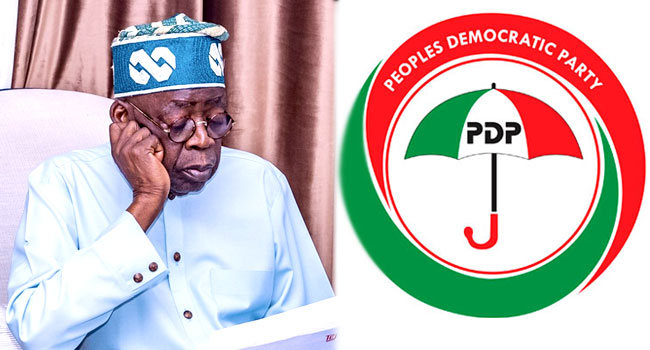Trade War: China To Raise Tariffs On U.S. Goods To 125% Saturday
China announced on Friday that it will raise tariffs on U.S. goods to 125 percent, while dismissing any further tariffs from President Donald Trump, arguing that American imports are no longer economically viable.
Following a turbulent week of escalating trade tensions between the world’s two largest economies, Beijing brushed off Trump’s aggressive tactics, calling them a “joke” and a mere “numbers game.”
China blamed Trump for triggering global market instability through sweeping tariff hikes, insisting that the United States must take full responsibility for the resulting economic disruption.
Trump has implemented widespread tariffs targeting major economies in an attempt to pressure companies to relocate to the U.S. and to reduce trade barriers for American goods.
However, after a chaotic week in the markets, he eased off, pausing many tariffs for 90 days — though he increased levies on Chinese goods to a striking 145 percent.
China’s latest response raises its tariffs to 125 percent starting Saturday. But its finance ministry stated that any new U.S. actions would be ignored, as the current tariff levels make American goods unviable in the Chinese market.
“The United States’ imposition of round upon round of abnormally high tariffs on China has become a numbers game with no practical significance in economics,” Beijing’s commerce ministry said.
“If the US continues to play the tariff numbers game, China will ignore it,” a spokesperson said.
Beijing also said it would file a lawsuit with the World Trade Organization over the latest round of levies.
Beautiful thing’ –
Trump has acknowledged “a transition cost and transition problems” arising from his tariff strategy, but he has dismissed global market turmoil.
“In the end it’s going to be a beautiful thing,” he said.
He described the European Union as “very smart” to refrain from retaliatory levies.
“(The EU) were ready to announce retaliation. And then they heard about what we did concerning China’,” Trump said.
But the 27-nation bloc’s chief Ursula von der Leyen told the Financial Times that it remained armed with a “wide range of countermeasures” if negotiations with Trump hit the skids.
“An example is you could put a levy on the advertising revenues of digital services” applying across the bloc, she said.
French President Emmanuel Macron also urged the EU to keep preparing action to counter the tariffs, which are only paused but not scrapped.
“With the European Commission, we must show ourselves as strong: Europe must continue to work on all the necessary counter-measures,” he said on X.
At talks with Spain’s Prime Minister Pedro Sanchez on Friday, state media quoted Xi as saying that China and the EU should simply team up on the issue.
“China and Europe should fulfil their international responsibilities… and jointly resist unilateral bullying practices,” Xi said.
THE LOUNGE: Mind-Reading or Effort, What Do Women Really Want? | Punch0:00 / 0:00
But following market turmoil this week, he blinked first in his push to remodel the post-war system of global commerce and froze many tariffs for 90 days, although he raised them for China to a staggering total of 145 percent.
Beijing’s latest round of retaliation brings its levies to 125 percent, effective Saturday.
But the Chinese finance ministry said further action by the US will be ignored because “at the current tariff level, there is no possibility of market acceptance for US goods exported to China”.
“The United States’ imposition of round upon round of abnormally high tariffs on China has become a numbers game with no practical significance in economics,” Beijing’s commerce ministry said.
“If the US continues to play the tariff numbers game, China will ignore it,” a spokesperson said.
Beijing also said it would file a lawsuit with the World Trade Organization over the latest round of levies.
– ‘Beautiful thing’ –
Trump has acknowledged “a transition cost and transition problems” arising from his tariff strategy, but he has dismissed global market turmoil.
“In the end it’s going to be a beautiful thing,” he said.
He described the European Union as “very smart” to refrain from retaliatory levies.
“(The EU) were ready to announce retaliation. And then they heard about what we did concerning China’,” Trump said.
But the 27-nation bloc’s chief Ursula von der Leyen told the Financial Times that it remained armed with a “wide range of countermeasures” if negotiations with Trump hit the skids.
“An example is you could put a levy on the advertising revenues of digital services” applying across the bloc, she said.
French President Emmanuel Macron also urged the EU to keep preparing action to counter the tariffs, which are only paused but not scrapped.
“With the European Commission, we must show ourselves as strong: Europe must continue to work on all the necessary counter-measures,” he said on X.
4/11/2025, 11:10:12 AM
views 2471
44







